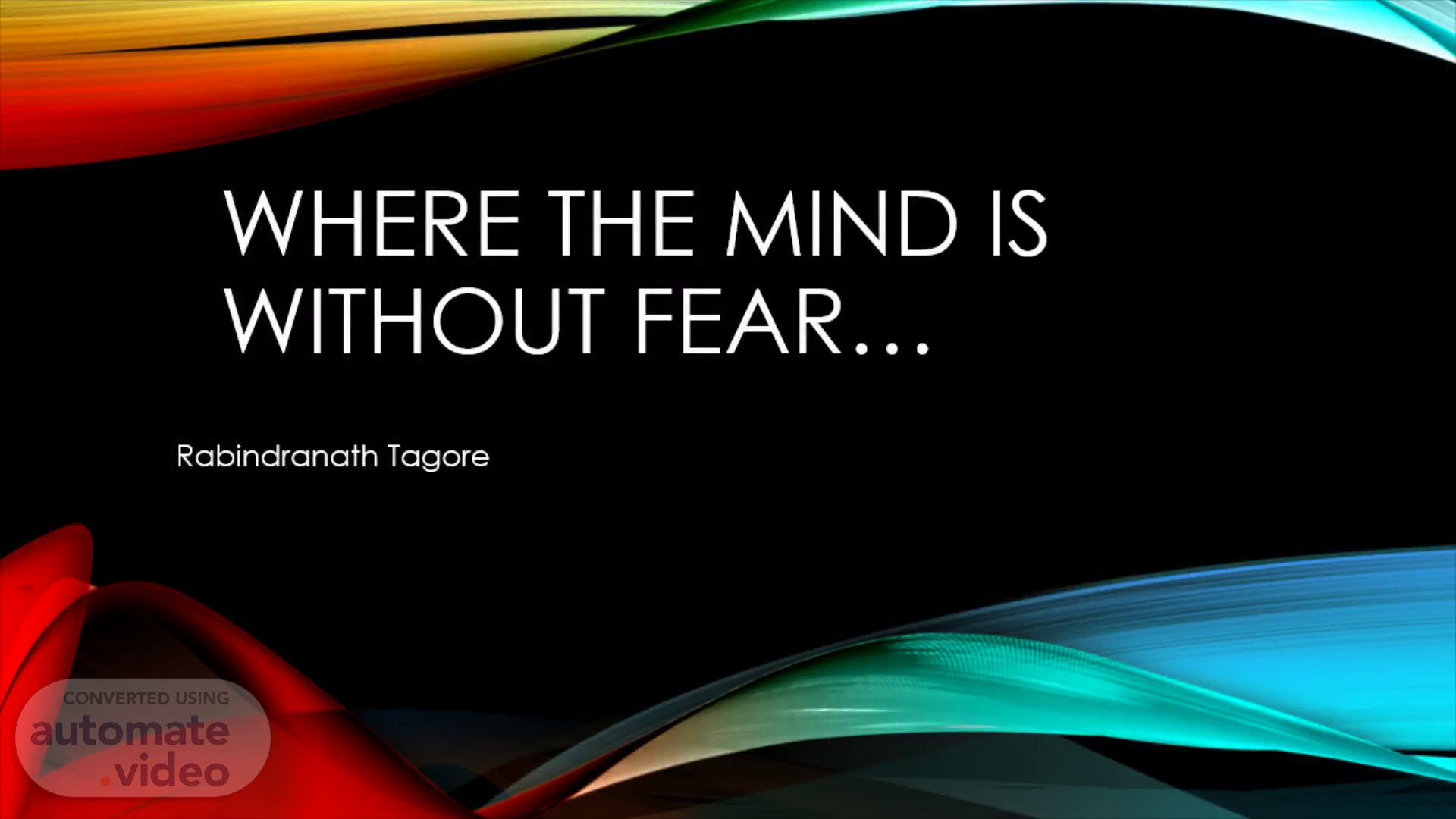
Page 1 (0s)
WHERE THE MIND IS WITHOUT FEAR…. Rabindranath Tagore.
Page 2 (7s)
Rabindranath tagore [1861-1941]. Tagore was the author of Gitanjali and its ‘profoundly sensitive, fresh and beautiful verse’. He became the first non-European to win the Nobel Prize in Literature in 1913. This poem is one of his vastly read and discussed poems. It was originally composed in Bengali and later he himself.
Page 3 (55s)
Where the mind is without fear and the head is held high Where knowledge is free Where the world has not been broken up into fragments By narrow domestic walls Where words come out from depth of truth Where tireless striving stretches its arm towards perfection Where the clear stream of reason has not lost its way Into the dreary desert sand of dead habit Where the mind is led forward by Thee Into ever-widening thought and action Into that heaven pf freedom , my Father, let my country awake..
Page 4 (1m 45s)
1. In the very first line, the poet prays to the Almighty that his countrymen should be free from any fear of oppression or forced compulsion. He wishes that everyone in his country has his head held high in dignity. 2. In the second line, the poet dreams of a nation where knowledge would be free. Education should not be restricted to the upper class only but everybody should be allowed to acquire knowledge. 3. In the 3-4 lines, the poet emphasizes the unity of not only of his countrymen but also the entire world. He thinks there should be no divison among people based on their caste, creed, color , religion or other baseless superstitions. 4. In the next line, Tagore wants a nation where people are truthful. They should not be superficial and words should come out from the depth of their hearts. 5. In the sixth line of the poem, the poets wants everyone to work hard to reach perfection. He thinks they should not be lazy ignoring their work..
Page 5 (2m 41s)
6. In the next line, the poet compares ‘reason’ or logical thinking to a “clear stream” and in the next line ‘dead habits’ or superstitious beliefs to a ‘dreary desert’. He wants the stream of reason not to lose its way into the deserts of prejudice. 7. In the final line of of the poem, the poet addresses the God as ‘father’. He asks him to awaken his country into such a ‘heaven of freedom’ where the above conditions meet. Finally, In the poem the poet’s message is very clear. If all the people of a nation are not wise enough to lead a happy and peaceful free from all evils. They cannot enjoy their freedom well. So the poet, only political freedom is not so important unless you are fearless, self dignified, knowledgeable, truthful, hard-working and broad-minded enough to enjoy it fully..
Page 6 (3m 42s)
The qualities the poet wants to inculcate in his countrymen.
Page 7 (4m 9s)
Meaning. Narrow domestic walls : division on the basis of religion, caste, class and colour in societies and between Tireless striving : continuous efforts and struggle Stretches its arm : aims at achieving a goal Dead habit : old traditional rituals and customs that are harmful Ever-widening : forever broadening one’s outlook Heaven of freedom : condition of total freedom of good thoughts, good words and good deeds, while respecting those of others.